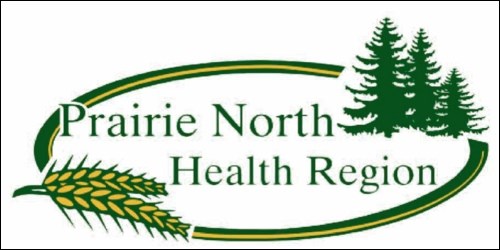Monday, Dec. 1 is World AIDS Day. It also marks the start of Aboriginal AIDS Awareness Week Dec. 1 - 5.
According to a press release, Prairie North Health Region is taking this opportunity to raise awareness of HIV and AIDS, and to help reduce the stigma associated with the disease.
PNHR HIV Strategy Co-ordinator Merle Ramshaw says World AIDS Day and Aboriginal AIDS Awareness Week are the perfect times for all people - including citizens of Prairie North - to join in the fight against HIV/AIDS.
"You can do that by finding out what HIV is and how it's transmitted," states Ramshaw. "Share that knowledge with your family and friends, including youth. Set an example of understanding and respect toward all people, including those with HIV/AIDS. You will help reduce the stigma, discrimination and maltreatment of people in our communities and around the world with HIV/AIDS."
Ramshaw explains people living with HIV continue to be pushed and some ultimately retreat to the edges of society.
"This fuels transmission of HIV/AIDS as people with the illness may not receive the care, support, understanding and treatment they need."
Saskatchewan's HIV Provincial Leadership Team recommends annual testing for HIV/AIDS for individuals who are sexually active and between 13-70 years of age.
"Get an HIV test and know your status," says Ramshaw. "Tests are available at your doctor's office or at a PNHR sexual health clinic."
Events and activities are planned throughout Prairie North Health Region to mark World AIDS Day and Aboriginal AIDS Awareness Week.
Across the region, displays will be set up at primary health care sites and other locations, with baskets of red AIDS awareness/support ribbons, information pamphlets, and posters. Some locations will have a small supply of condoms as a reminder of one method of preventing the spread of HIV.
In the Battlefords on Dec. 1 from 11:30 a.m. to 1 p.m., Battlefords Family Health Centre will be holding an event to commemorate World AIDS Day. Nicci, a woman living with HIV, will be sharing her experience with the disease. BFHC is located at 1192 - 101 St., North Battleford. Contact BFHC HIV Project Co-ordinator Kent Lindgren or BFHC HIV Outreach Worker Amanda Maunula at 306-937-6840.
In Lloydminster during Aboriginal AIDS Awareness Week, daily events will occur at the Lloydminster Native Friendship Centre, 4602-49 Ave. All events are free and open to the public:
Monday, Dec. 1: smudging at 10 a.m., followed by an honour walk; then noon lunch and an informational presentation about HIV at 1 p.m. by Carri Girodat, PNHR outreach worker.
Tuesday, Dec. 2: First Nation Elder speaking on traditional relationships 10 a.m. and 2 p.m.
Wednesday, Dec. 3: free community soup and bannock at noon, served by Mayor Rob Saunders and councillors Lachlan Cummine, Larry Sauer and Linnea Goodhand.
Thursday, Dec. 4: presentations by guest speaker Marji, a First Nation individual living with HIV, and Carri Girodat, PNHR outreach worker, 10 a.m. and 2 p.m.
Friday, Dec. 5: free community pancake breakfast 9:30 - 11 a.m.
A candlelight vigil (with battery-operated candles) will begin at the LNFC on Dec. 1, and remain on until the afternoon of Dec. 5. You can join in by lighting smaller battery-operated candles for friends and loved ones.
Ramshaw notes many people continue to believe HIV/AIDS is something that doesn't affect them, and they pay little attention to it. She urges everyone to consider the numbers:
( Saskatchewan currently has the highest rates of new HIV cases in Canada, with 17 per 100,000 new cases (Public Health Agency of Canada, 2012).
( One in four people are unaware that they have HIV.
( About 73,000 people in Canada are living with HIV.
( Seventy-five million people have been infected with HIV in the world (WHO, 2014).
( About 35.3 million people in the world live with HIV, close to the entire number of people living in Canada (WHO, 2014).
( In 2012, 1.6 million people died from HIV (WHO, 2014).




